8 Realistic Ways to Get Better Sleep Tonight
If you're tired of the same old sleep hygiene advice—Strict bedtimes! No screens!—check out this expert-approved guidance that actually works in the real world.
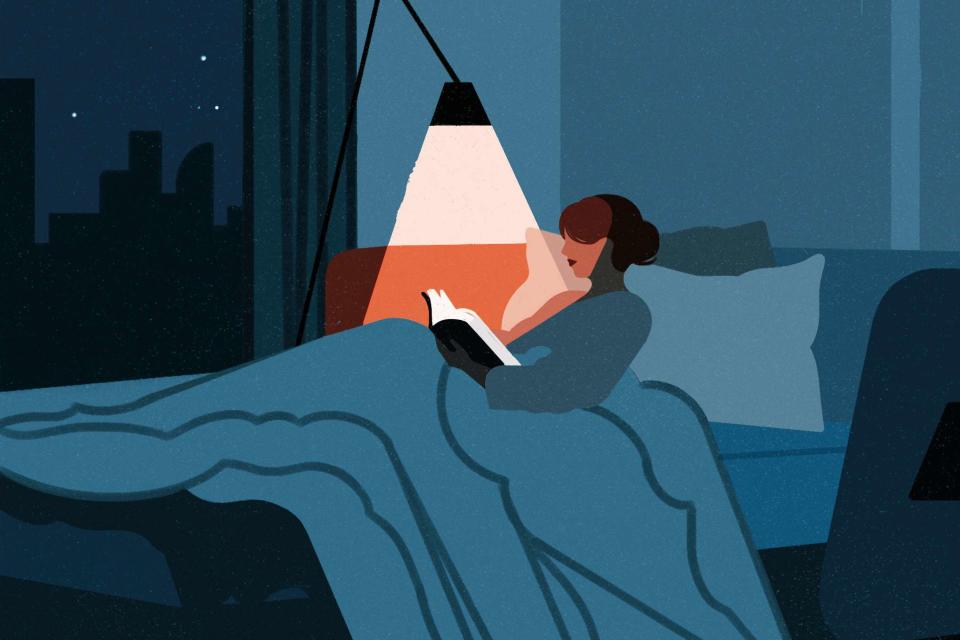
We know what we’re supposed to do at bedtime: Draw the blackout curtains. Meditate. Avoid wine, screens, the fridge, and other fun stuff. Thing is, those classic bits of advice can be impractical for our overextended, underrested nation. Don’t (night) sweat it! What you actually need is advice for the real world—little tweaks to the standard strategies that can improve your rest without stressing you out. And here it is.
Tired: Set boundaries around your bedtime.
Inspired: Add more self-care to your day.
Ever feel personally offended that a long day is over and you haven’t had one minute just for you? So you blow off bedtime, then wake up exhausted? You may be a “revenge bedtime procrastinator,” delaying sleep to carve out time for yourself.
In one study of Chinese nursing students, researchers found that bedtime procrastinators were more likely to experience self-regulatory fatigue. Self-regulation is controlling your feelings and behaviors so they conform to what’s expected by your boss, family, friends, even the critical inner voice that says you should stop biting your nails. After 12-plus hours of meeting deadlines, answering your kids’ questions, and passing on dessert, you may be too burned-out to face one more “should.”
Rather than chastise yourself, think about what would make you feel more fulfilled during the day, whether it’s exercising, sitting with a book, or just zoning out for a bit. Also: What obligations can you outsource, share, or ditch? And think of going to bed on time not as a punishment for Current You but as a treat for Future You.
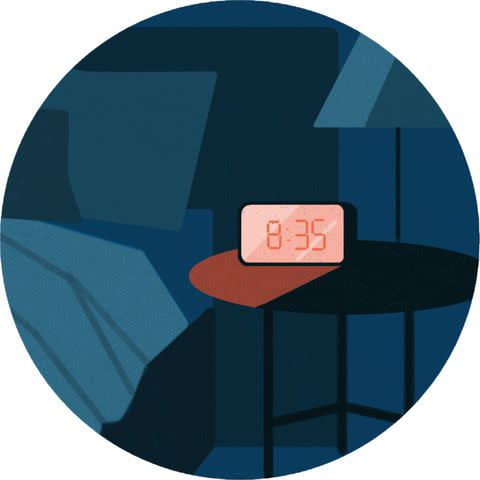
Tired: Go to bed at the same time no matter what.
Inspired: The occasional late night is fine! Just don't sleep in.
Consistent sleep and wake times are super important—maybe even more important than how long we’re conked out. According to a recent study in the journal Sleep, people with regular sleep patterns (waking within the same one-hour window each day) had a lower risk of early death than people with irregular patterns (whose wake times fell within a three-hour window). That said, occasionally you want to stay up and enjoy life, says Wendy Troxel, PhD, senior behavioral and social
scientist at the Rand Corporation, a nonprofit research institution.
When you do party hearty, get up the next morning at your usual time or within two hours of it—especially if it’s a Sunday, Troxel says. “It’s better to be a little sleep-deprived than to be wired on Sunday night, which can keep you up and throw off your entire week,” she explains. Get up and, as soon as possible, seek some natural light, which helps your body regulate its sleep-wake cycles
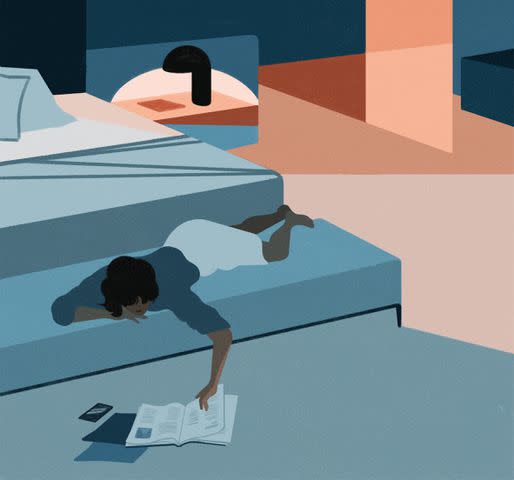
Tired: Get at least 8 hours a night.
Inspired: Adapt your routine to what works for you.
It’s a myth that everyone needs eight to nine hours of sleep every night, says Michael Breus, PhD, a fellow of the American Academy of Sleep Medicine and the author of The Power of When. “The amount you need depends on your chronotype, which determines whether you’re naturally a morning person, an evening person, or somewhere in between,” he adds. Building on chronobiology research begun in the 1970s, Breus has categorized four major types (to find your type, take Breus's quiz.)
Lions wake up at dawn, like morning hunters.
Bears are go-with-the-flow types whose schedules most align with 9-to-5 culture. They amble out of their caves when the sun is up and are ready to snuggle after sundown.
Wolves prefer to wake up late and stay up late, in the style of nocturnal hunters.
Dolphins are light sleepers and often have insomnia. (Fun fact: Only half of an actual dolphin’s brain sleeps at a time; the other half keeps the body moving and stays alert for predators.)
Lions and bears have a higher sleep drive (the desire for sleep), so they tend to need more rest than wolves and dolphins, Breus says. He measures sleep not in hours-long segments but in stretches of 90 minutes, the approximate amount of time it takes to cycle through the four progressively deeper stages of sleep before we start over again. According to Breus, lions and bears need five full cycles (71/2 hours total), while wolves and dolphins require four (six hours).
Ideally, we’d keep schedules that suit our chronotype, but most of us can’t lope into the office at noon and say, “Sorry. I’m a wolf!” Still, Breus says, “small tweaks can help you feel more in sync.” Lions could move morning workouts to the evening, when they need a boost. Bears who are grumpy in the afternoon might need a power nap (or a deep-breathing break). Wolves might shower at night so they have time to ease awake in the a.m. Dolphins might need to eat energizing high-protein breakfasts and save the comforting carbs for dinner.
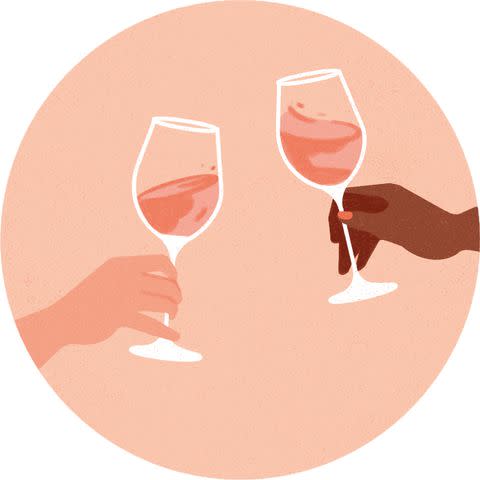
Tired: Go teetotally dry.
Inspired: Drink responsibly.
Alcohol may lead you right to dreamland, but your sleep is less restful, and when the sedative effect wears off, you’ll probably be awake in the latter part of the night. The way to booze and snooze is, unsurprisingly, to limit yourself to one drink. “The rule of thumb I share with patients is to have one drink no later than three hours before bed,” says J. Todd Arnedt, PhD, director of the Behavioral Sleep Medicine Program at Michigan Medicine, who researches how alcohol affects sleep. “That’s how long it takes the average person to absorb one drink, though so many factors are involved—your sex, your tolerance, your weight, whether you eat beforehand.”
If your nightcap turns into nightcaps or you drink a little too close to bedtime, reach for a snack full of fiber and protein (bar nuts count), which take longer to digest, and hydrate (have at least a full glass of water for each alcoholic drink). If you want to keep the good cheer going, consider a
nonalcoholic version of your favorite beverage. Plenty of low- or no-alcohol beers, wines, and spirits taste great and can hit the spot.
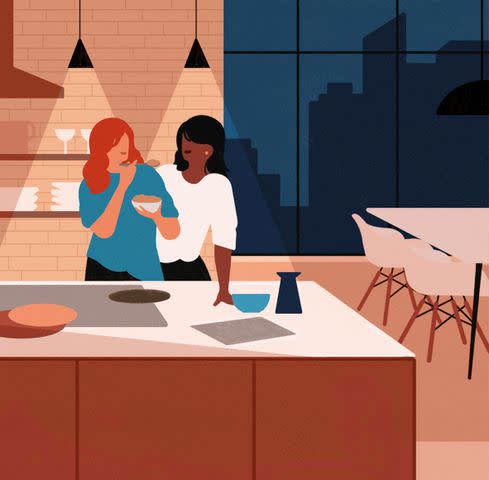
Tired: Stop eating three hours before bedtime.
Inspired: Pick smarter bedtime snacks.
Eating before bed has gotten an undeservedly bad rap. “There’s no great evidence that it harms your sleep, while going to bed hungry can definitely have an impact,” says W. Chris Winter, MD, a neurologist, sleep specialist, and author of The Sleep Solution: Why Your Sleep Is Broken and How to Fix It. “I recommend having dinner at least two hours before bedtime, and if you get hungry again, have a healthy snack. Some can actually promote better sleep.”
Expert-approved bedtime snacks
Hummus with crackers: Chickpeas are high in plant-based protein and the amino acid tryptophan, which can increase levels of serotonin, a precursor to melatonin. Extra credit if your hummus has garlic, which contains magnesium that could help with relaxation and sleep maintenance. Add a few crackers for carbs, which promote amino acid movement, making more tryptophan available to the brain.
Yogurt with nuts and dried tart cherries: One of Winter’s favorite before-bedtime snacks, it has protein to promote sleep. Plus, the tart cherries contain melatonin.
Salmon: A broiled fillet isn’t exactly over-the-sink food, so try tinned salmon or Winter’s pick, salmon jerky. The omega-3s can improve the quality of your sleep.
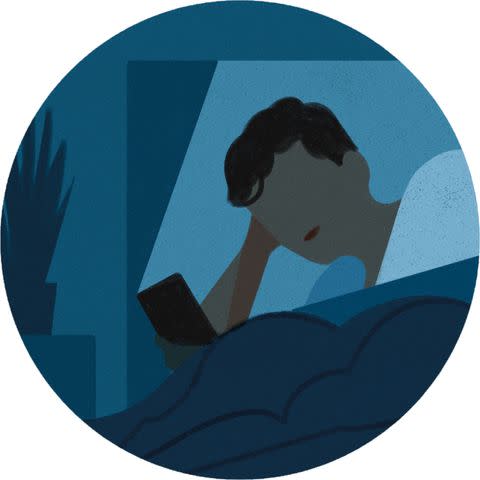
Tired: Keep your phone out of the bedroom.
Inspired: Choose your content wisely.
While bedtime procrastination is highly associated with smartphone use, the phone itself isn’t necessarily the problem, according to Troxel. “People minimize the role of the content they’re consuming, which is designed to keep you engaged and even addicted,” she says. This will sound familiar to anyone who’s ever gotten lost in Instagram’s space-time continuum, scrolling from video to video for the next dopamine delight.
If you can’t bear to put your phone down, at least skip social media and opt for a soothing video. Try the Monterey Bay Aquarium live cams or the tranquil environments in the Portal app.
Alternatively, go with a different type of media, which evidence shows isn’t all that disruptive. In a small recent study in the Journal of Sleep Research, researchers examined people who watched TV, listened to podcasts, or read books in the hour before bed, hooking them to EEGs that tracked total time in REM and deep sleep. As long as the subjects weren’t engaging in lengthy binge sessions or multitasking—e.g., watching TV while using their phones—their sleep quality wasn’t affected.
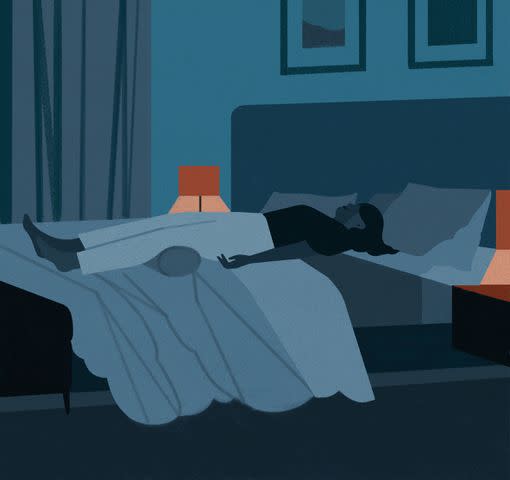
Tired: If you can't sleep, get up!
Wired: Stay in bed and do yoga.
Many experts say that if you’re tossing and turning, you should move to another part of your home until you’re sleepy again, lest your body comes to associate lying in bed with being awake. If you’ve had luck with this strategy, keep it up. If not, consider staying put, says Guy Meadows, PhD, cofounder and clinical director of the Sleep School in London, which offers individual counseling and group workshops, and creator of the Sleep School app. “Staying in bed lets us rest, while getting up can make us more wakeful and worsen our anxiety levels,” he says. Over time, we may even train ourselves to be up and about during the wee hours.
Instead of staring at the ceiling, try a meditation called yoga nidra, also known as yogic sleep
or psychic rest. It requires you to do nothing but lie still and can leave you feeling refreshed. Start
by setting an intention, says Katie Stewart, PsyD, a Pittsburgh-based psychologist and yoga nidra teacher. “Your intention can be simply to relax,” she adds. “It’s a way to orient your mind so you aren’t lying there with swirling thoughts.” The session, usually 30 to 45 minutes, then follows a prescribed order, which includes bringing awareness to different parts of the body from head to toe; focusing on the breath; imagining opposing sensations in the body (hot vs. cold, heaviness vs. lightness); and observing feelings and emotions. “Sometimes when I lie in bed practicing yoga nidra,
my sleep tracker reports that I was asleep,” Stewart says. Find guided sessions at Stewart’s site, on YouTube, or through apps like Insight Timer.
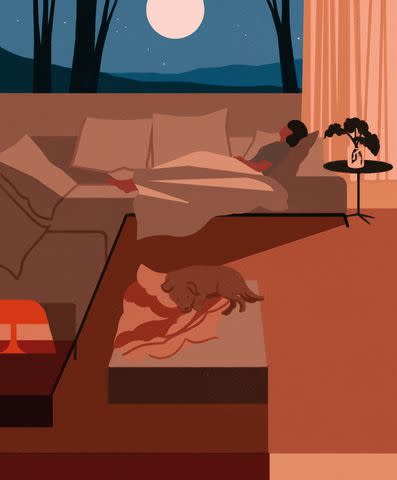
Tired: Control all the controllables.
Inspired: Stop micromanaging your sleep.
The most frustrating thing about sleeping may be that the harder you try to do it, the more elusive it seems. “Our brains are problem-solving machines, designed to worry,” says Meadows, author of The Sleep Book: How to Sleep Well Every Night. Meadows treats insomnia using acceptance and commitment therapy, an approach that incorporates aspects of behavioral therapy, mindfulness, and Buddhist principles, and emphasizes going with the flow. “We use a technique called defusion,” Meadows says. “When your mind tells you that you can’t sleep and won’t be able to cope the next day, don’t engage. Just notice that thought floating by. Instead of being in a restrictive stance, you’re open. You’re telling your amygdala, the primitive, fearful part of the brain, that you’re safe. And with safety comes sleep.” Sweet dreams!
For more Real Simple news, make sure to sign up for our newsletter!
Read the original article on Real Simple.


